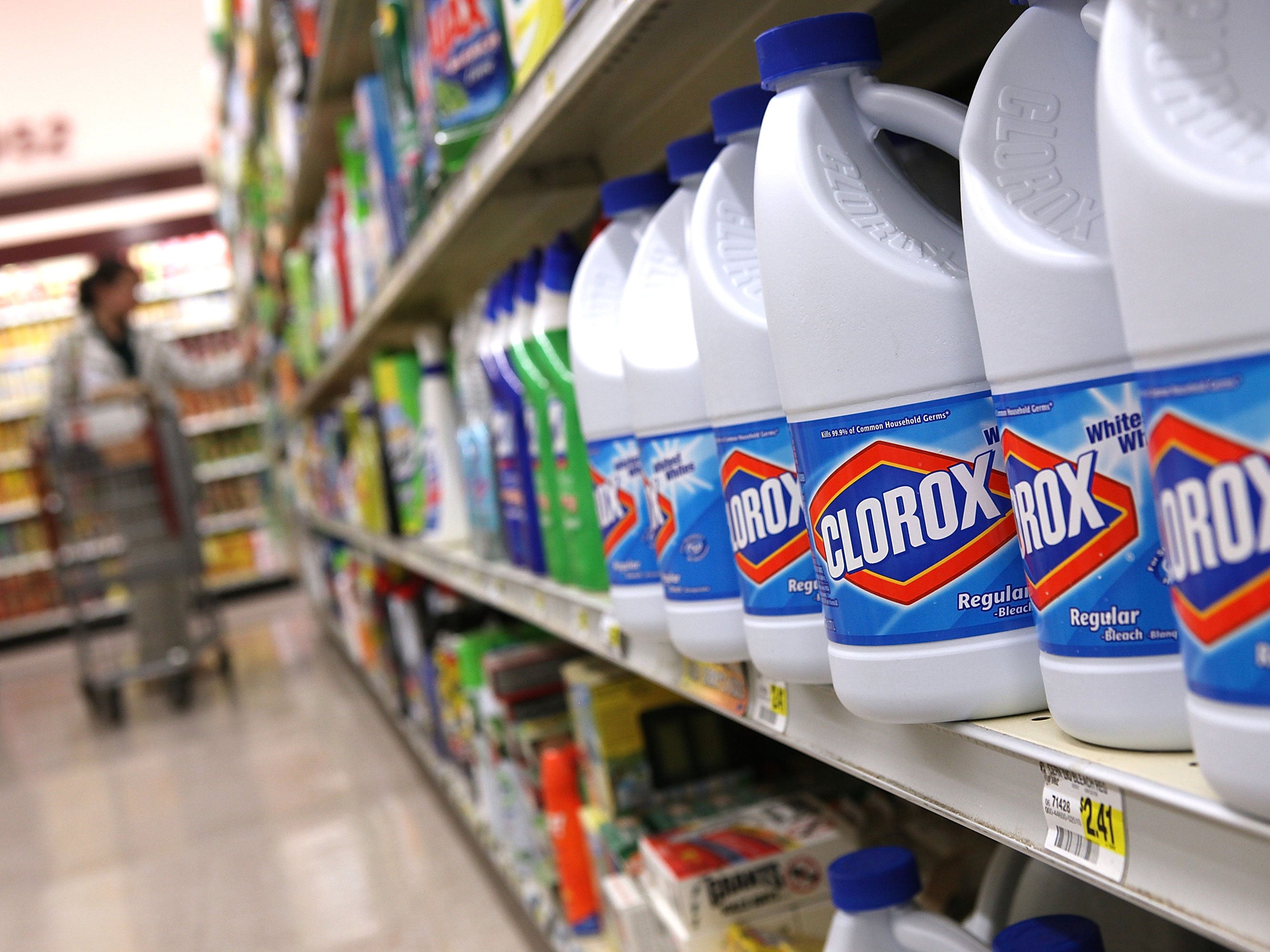Bleach 'linked to 20% rise in childhood infections including flu and bronchitis'
Bleach has been linked to a rise in respiratory illness in children

Your support helps us to tell the story
From reproductive rights to climate change to Big Tech, The Independent is on the ground when the story is developing. Whether it's investigating the financials of Elon Musk's pro-Trump PAC or producing our latest documentary, 'The A Word', which shines a light on the American women fighting for reproductive rights, we know how important it is to parse out the facts from the messaging.
At such a critical moment in US history, we need reporters on the ground. Your donation allows us to keep sending journalists to speak to both sides of the story.
The Independent is trusted by Americans across the entire political spectrum. And unlike many other quality news outlets, we choose not to lock Americans out of our reporting and analysis with paywalls. We believe quality journalism should be available to everyone, paid for by those who can afford it.
Your support makes all the difference.Researchers say they have discovered a link between the weekly use of bleach at home and the frequency of infections in children, particularly of a respiratory nature.
While bleach is effective in killing germs, the chemical may leave children more susceptible to catching flu, tonsillitis or other infections.
Exposure to bleach was associated with a 20 per cent increase in the risk of flu and a 35 per cent rise in the risk of recurrent tonsillitis.
The study, carried out by the Centre for Environment and Health in Belgium, looked at the potential impact among more than 9,000 schoolchildren between the ages of six and 12 in the Netherlands, Finland and Barcelona.
Parents were asked to complete a questionnaire on the number and frequency of flu, tonsillitis, sinusitis, bronchitis, otitis (inflammation of the ear canal), and pneumonic infections their children had suffered over the preceding 12 months.
They were further asked whether they used bleach to clean their homes on at least one day a week.
Use of bleach was particularly high in Spain (72 per cent) but very rare (7 per cent) in Finland.
All Spanish schools were cleaned with bleach whilst Finnish schools were not.
The study further took into account factors such as passive smoking at home, parental education, household mould and use of bleach to clean schools.
In all three countries the findings indicated that the number and frequency of infections were higher among children whose parents regularly used bleach to clean the home.
A possible explanation is that the irritant properties of compounds generated during the cleaning process may damage the lining of lung cells which leads to inflammation and makes it a more conducive environment for infections to take hold.
Dr Lidia Casas, a member of the Centre for Environment and Health in Belgium, said that the findings of the report were concerning:
“The high frequency of use of disinfecting cleaning products, caused by the erroneous belief, reinforced by advertising, that our homes should be free of microbes, makes the modest effects reported in our study of public health concern.
“Passive exposure to cleaning bleach in the home may have adverse effects on school-age children’s health by increasing the risk of respiratory and other infections.”
The study emphasised that it was only observational so no definitive conclusions should be drawn regarding cause and effect.
Dr Casas added: “Although modest, the results are of a public health concern in light of the widespread use of bleach in the home, but we need more detailed studies in this area.”
The study was published online inOccupational & Environmental Medicine, an online journal.
Join our commenting forum
Join thought-provoking conversations, follow other Independent readers and see their replies
Comments